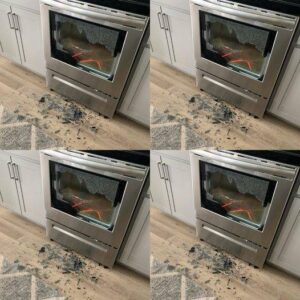Kidney disease is a serious condition affecting millions worldwide. When the kidneys are damaged, they can’t function properly, which is crucial for maintaining fluid and electrolyte balance and filtering waste from the blood. Early detection and treatment are essential to prevent further damage and complications. Thankfully, the body sends signals that something might be wrong with your kidneys. Learn to recognize these signs and seek medical help promptly.
Understanding the Role of the Kidneys
The kidneys are two small, bean-shaped organs located on either side of the spine, just below the ribcage. They filter blood, removing waste products and excess fluids, help control blood pressure, produce red blood cells, and maintain the balance of electrolytes like sodium, potassium, and calcium. Healthy kidneys filter around 120 to 150 quarts of blood daily, producing about 1 to 2 quarts of urine.
What is Kidney Disease?
Kidney disease, or renal disease, occurs when the kidneys are damaged and can no longer function optimally. Causes include high blood pressure, diabetes, infections, autoimmune disorders, and genetic factors. If left untreated, kidney disease can progress to kidney failure, requiring dialysis or a kidney transplant. Early detection is critical for effective management and preventing further damage.
Signs of Kidney Disease
Many people don’t catch kidney disease until it is advanced. However, the body does send early warning signs. Here are 10 signs that your kidneys might be in trouble:
Changes in Urination
Increased frequency, especially at night
Decreased urination or foamy urine
Fatigue and Weakness
Anemia caused by kidney disease leads to persistent fatigue and difficulty concentrating
Swelling
Fluid buildup (edema) causing swelling in the legs, hands, face, and abdomen
Persistent Back Pain
Severe pain below the ribcage, often accompanied by tenderness, and usually related to untreated urinary tract infections
Unexplained Weight Loss or Loss of Appetite
Decreased appetite and weight loss due to waste buildup in the body
Nausea and Vomiting
Feeling of nausea and episodes of vomiting, especially in the morning or after meals
Difficulty Sleeping
Trouble sleeping due to nighttime muscle cramps, restless leg syndrome, or frequent urination
Metallic Taste in the Mouth
Persistent metallic taste from the buildup of waste products in the blood
Muscle Cramps and Twitching
Electrolyte imbalances causing muscle cramps and twitching
Itchy Skin
Generalized itching from toxin accumulation in the blood
These symptoms can vary depending on the stage and severity of kidney disease. If you notice any of these signs, consult a healthcare professional for further evaluation and appropriate management. Early intervention can make a significant difference in the treatment and outcome of kidney disease




